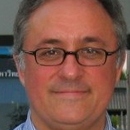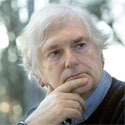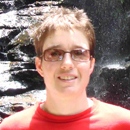Academic Editors
The following people constitute the Editorial Board of Academic Editors for PeerJ. These active academics are the Editors who seek peer reviewers, evaluate their responses, and make editorial decisions on each submission to the journal. Learn more about becoming an Editor.

Heriberto Rodriguez-Martinez
Professor of Reproductive Biology at the Faculty of Health Sciences and Director of the Centre of Biomedical Resources at the University of Linköping, Sweden. DVM, MSc, PhD; Professor of Reproductive Biotechnology, SLU 1991, Founding Diplomate of the European College of Animal Reproduction (ECAR, 1999). Editor-in-Chief of Reproduction in Domestic Animals (Wiley-Blackwell, 2000).

Rita Grandori
Professor of Biochemistry at the Department of Biotechnology and Biosciences, University of Milano-Bicocca, Milan, Italy. Adjunct Professor of Protein Science at the Institute of Organic Chemistry, Johannes Kepler University, Linz, Austria.

Astrid M. Kamperman
Dr. Astrid Kamperman is Assistant Professor of Psychiatry at the Erasmus University Medical Center. She is a psychiatric epidemiologist, statistician and methodologist with a strong affinity towards social psychiatric topics and issues related to women's mental health.

Darren W Williams
Group Leader and Reader at King's College London. My research focuses on the mechanisms that control the assembly of neural networks. I have explored how network components are generated from distinct neural precursors, how axons and dendrites are guided to their targets and the way dendrites undergo large-scale pruning. Although my lab uses Drosophila, my experience with zebrafish and teaching human neuroanatomy to medical students broadly influences the questions I ask.

Rishi R. Burlakoti
Dr. Rishi Burlakoti is a Research Scientist- Plant Pathology at Agassiz Research and Development Center, Agriculture and Agri-food Canada (AAFC). His research programs focuses on diseases of high value horticultural crops including berry crops, field and greenhouse vegetables crops of British Columbia. Dr. Burlakoti is also an Adjunct Professor in Faculty of Land and Food System, University of British Columbia (UBC) and in Plant Agriculture, University of Guelph. Dr. Burlakoti is serving in editorial boards of ‘Canadian Journal of Plant Pathology’, ‘Canadian Journal of Plant Science’, and ‘Plants’. Dr. Burlakoti is a member of Canadian Phytopathological Society (CPS) and International Society for Horticultural Sciences. He is also a life member of Society of Agricultural Scientist Nepal and Nepalese Society of Horticultural Science, Nepalese Professional of Americas.
Dr. Burlakoti earned PhD in Plant Pathology from North Dakota State University, USA. Before Joining AAFC, Dr. Burlakoti worked as a Plant Pathologist in World Vegetable Center and led the Mycology and Bacteriology units at Center’s headquarters in Taiwan. He also worked as a Research Lead an Agricultural Consulting Company, Weather Innovations Consulting LP, in Canada. Dr. Burlakoti lead several applied research projects on diversified crops including vegetables, field crops and fruits to improve disease/pest management capacity and to increase crop productivity.

Edward R Smith
Professor Edward Smith is an Associate Professor in the Department of Medicine, University of Melbourne and Senior Scientist at the Kincaid-Smith Renal Laboratories, Department of Nephrology, The Royal Melbourne Hospital. He is interested in mineral metabolism and kidney disease.

Tarl W Prow
Dr. Tarl Prow is the Deputy Director of the Dermatology Research Centre within the School of Medicine and heads a group of 10 researchers focused on micromedical devices for dermatology and nanomedicine. He is a multidisciplinary researcher with internationally recognized expertise in the fields of micro-medical device development, nanodermatology, topical drug delivery and non-invasive imaging.

Mohamed A. El-Esawi
Dr. Mohamed A. El-Esawi is Professor at Faculty of Science, Tanta University, Egypt. Dr. El-Esawi received his BSc and MSc from Tanta University, and his Ph.D. degree from Dublin Institute of Technology, Technological University Dublin, Ireland. After obtaining his Ph.D., Dr. El-Esawi joined the University of Warwick in the United Kingdom, University of Sorbonne in France, University of Leuven (KU Leuven) in Belgium and University of Cambridge in the United Kingdom as a visiting research fellow. His research focuses on genetics, molecular biology, environmental health and safety, environmental stress, biotechnology, molecular physiology, developmental biology, and bioinformatics. He has authored more than 150 international peer-reviewed articles, book chapters, books, and patents, and has participated in more than 70 conferences and workshops worldwide. Dr. El-Esawi has received several grants and international awards and recognition, including the Plants 2021 Young Investigator Award (MDPI, Switzerland). He has been ranked among the world's top 2% Scientists by Stanford University in USA, and is currently involved in several research projects.

Noemi Fernandes
Assistant Professor of Bioinformatics and other disciplines at the Federal University of Itajuba, Brazil. She conducts research in the field of diversity and evolution of unicellular eukaryotes, with a special focus on the phylum Ciliophora. She is experienced in DNA metabarcoding analysis, molecular clock and protist phylogenomics.

Stephen P Hubbell
Distinguished Professor of Ecology and Evolutionary Biology, UCLA, and Senior Staff Scientist, Smithsonian Tropical Research Institute; Founding Chair, National Council for Science and the Environment, Washington, D.C.; Co-founder, Center for Tropical Forest Science; Fellow, American Academy of Arts and Sciences: Fellow, American Association for the Advancement of Science; 2016 Laureate, International Prize in Biology, Japan Society for the Promotion of Science

Julien GA Martin
I am generally interested in understanding the causes of variation in life history traits in wild populations, with particular on the causes and consequences of within-individual variation in life history. The focus of my research is the evolutionary ecology of reproductive strategies and understanding the impact of environmental variation on adaptation and evolution of traits.
Lecturer, University of Aberdeen, Aberdeen, UK
2013-2015 Marie-Curie Fellow, University of Aberdeen, Aberdeen, UK
2010-2012 Postdoctoral fellow, UCLA, Los Angeles, USA
2006-2010 PhD University of Sherbrooke, Sherbrooke, Canada

Charlotte M. Deane
Professor of Structural Biology and Director of the Systems Approaches to Biomedical Sciences Industrial Doctoral Centre at Oxford University.

